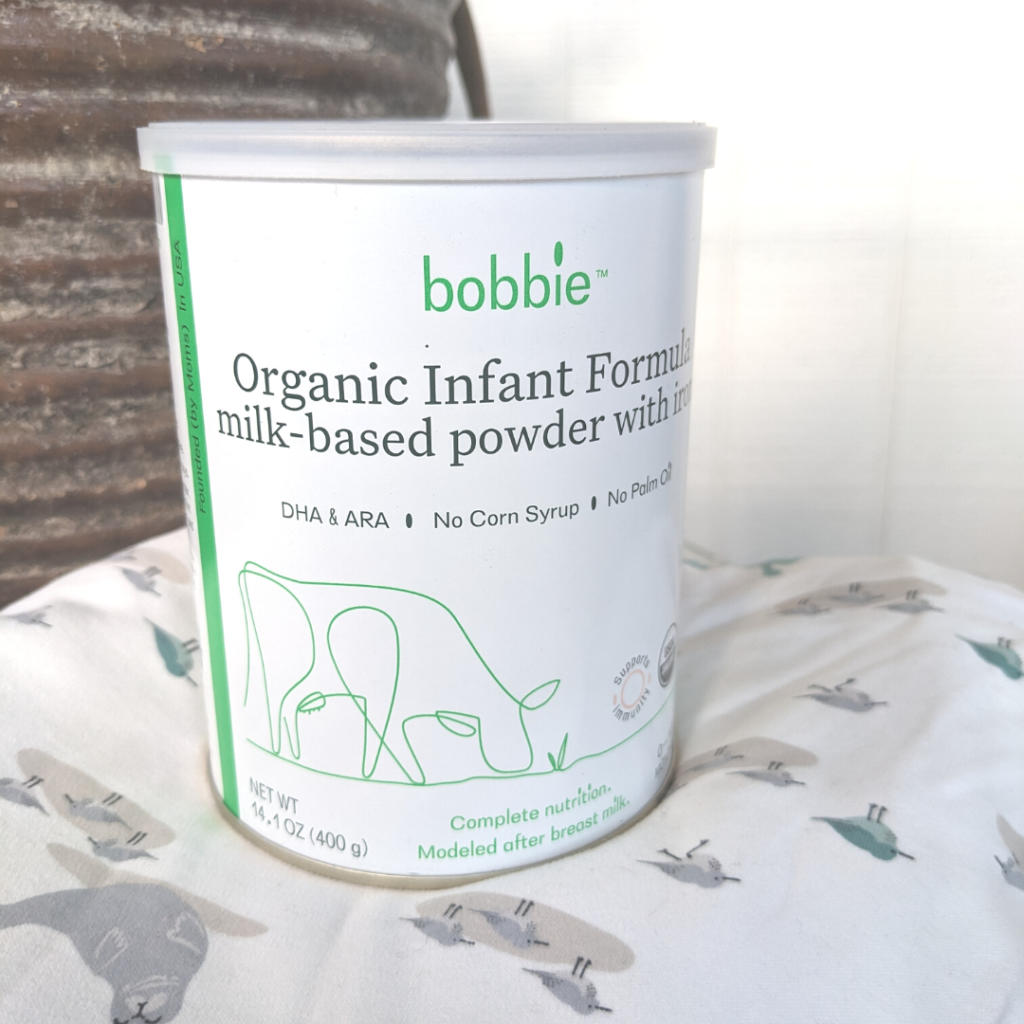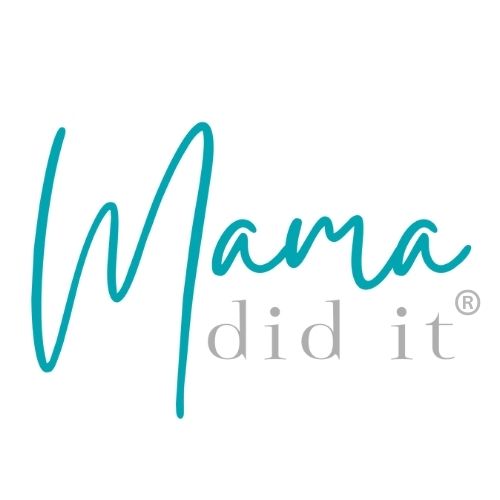Here’s the step-by-step guide to choosing the best formula for supplementing a breastfed baby from a baby nurse. Plus, is an off-brand formula just as good as name brand?
There are so many reasons that we may need to supplement a breastfed baby. I found myself in this situation, even though it wasn’t my preference, with my first baby. As a baby nurse, I knew lots about formula companies, but how would I choose the right formula for my own baby? Let’s look at a few of the best formulas for supplementing a breastfed baby.
After having my first baby, I went back to work full-time. It wasn’t what I desired to do, but financially, we couldn’t afford any other way at the time. Within one month, my milk supply had dropped substantially. I did everything I could to get it back up. Power pumping became a normal sport for me as I took more breaks than I should at work to try and get my milk back. From staring at my baby’s photo while pumping to drinking mother’s teas, I did everything I could, but it never came back.
I felt like such a failure. What do you do when breastmilk is best but you don’t have enough? You cry. And then you get educated and figure out what the next best option is for you and your baby. And in time, you applaud yourself for feeding your baby well, meeting their nutritional needs, and taking care of your own peace of mind by letting go of what you believed was “perfect.”
I’ve heard of many mothers’ stories where they were encouraged to breastfeed as much as possible in the wake of postpartum hemorrhage or other medical issues. In these cases, their bodies do not tend to make enough milk. We can’t ask something of a mother that she is incapable of. She must do what’s best for her baby AND for herself.
The best formula for supplementing a breastfed baby
Below we will look at types of formula, like powdered vs liquid, as well as milk-based vs plant-based. You will find my favorite formula for supplementing as well as my top 4 list. I hope to walk you through all of these details so you don’t feel overwhelmed when choosing the right formula for you.
Want to get straight to the list? Scroll to the bottom of the blog 🙂
As a nurse and childbirth educator, I feel an obligation to tell you what I’m sure you already know: the American Academy of Pediatrics recommends exclusive breastfeeding for the first six months of your baby’s life. But as we’ve already seen, like in my own situation, this simply isn’t possible for all mothers. There are many great options for moms who are unable to exclusively breastfeed.
What about donor breast milk?
If you haven’t already, it may be important to see a lactation consultant. These are breastfeeding specialists who can help you meet your breastfeeding goals. They are also a great resource to find donor breast milk or learn how combination feeding works if you have a low milk supply and your baby isn’t getting enough breast milk.
Donor breast milk is a great option for mothers who wish to exclusively breastfeed but are unable to do so. Donor breast milk can be purchased, but I encourage you to only purchase donor breast milk through a milk bank. They will appropriately screen the milk to make sure it is free from infectious diseases. Research tells us that donor breast milk, though possibly hard and expensive to get, is the best option for supplementing babies.
The pros of donor milk are that it will be closest to your own breast milk. The cons are the cost and finding it. Many moms also find it incredibly inconvenient.

You’re not a failure if breastfeeding didn’t go as planned!
When my milk supply had substantially decreased and I saw my lactation consultant, she helped enormously. I felt devastated. As I cried, she reassured me that I wasn’t alone and I wasn’t a failure for needing to give supplemental formula. (Donor breast milk wasn’t an option for us.) She guided me on how to continue to meet my goals while also transitioning to new goals that included bottle feeding. The most important thing was my baby was now receiving enough milk to meet his nutritional needs and gain weight appropriately.
One of the biggest concerns of a breastfeeding mother is if their baby is getting enough breast milk. How much breast milk do babies need? If you’re not sure yet, here are 5 ways to tell how much breast milk babies need.
The Best Formula for Supplementing a Breastfed Baby
Can you successfully breastfeed and supplement with formula?
Have you ever wondered why the AAP (American Academy of Pediatrics ) recommends exclusive breastfeeding for the first six months?
It’s because of the research evidence. We know beyond a shadow of a doubt that breast milk is the most beneficial and complete food a baby can get. Even if you can only breastfeed for a few days, a few weeks, or a few months, you are doing wonders for your baby’s health. Celebrate the awesome start, because you deserve it! Even if you can only give your baby one teaspoon of breast milk per day, you are packing them full of all the immunities you have.
A mother’s milk will adapt to her baby’s needs as they change over the months. If the mom has a cold, her body will make immunities to that specific germ which will then pass to her baby. This boosts the baby’s immunity, and can even cause the breast milk to change colors for a time. Pretty cool. Though we’ve been able to get somewhat close to replicating breast milk, there’s no exact replica.
That being said, we have come a LONG way with formula. We now know more than we have ever known about the composition of breast milk and the nutritional needs of babies. There are some excellent formulas on the market that will meet these nutritional needs. Finding the right one can feel overwhelming at first, but the more you learn, the more you are able to land on the right choice for your family.
So, Can you successfully breastfeed and supplement with formula?
Absolutely. I did it myself.
Though I wanted to exclusively breastfeed, I just didn’t have the supply for it with my first baby. I was later able to have plenty with my next baby. And by the time my third baby came, I nursed for two years, something I never thought I would accomplish. Just because you don’t have enough milk supply with one baby doesn’t mean you won’t with others.
You’ve probably heard us nurses discourage early bottle or pacifier use if you are breastfeeding, and there’s a good reason for it. Babies suck from a breast completely differently than they suck from a hard nipple. Your baby is also stimulated to suck when she feels a nipple on the roof of her mouth. The nipple of the breast is very soft. If she is introduced too early to a hard nipple, like a paci or bottle, she may be unable to go back well to the breast.
Once breastfeeding is established (for some babies this takes about one month), it is usually safe to offer bottles or pacis.
When you are supplementing your breastfed baby with formula, always breastfeed first. If your baby formula-feeds first, he may be uninterested in breastfeeding once he isn’t hungry. If you are giving your baby pumped milk, give the pumped milk first, allow your baby to finish it all, then give formula. Don’t mix pumped milk and formula. Your baby may not finish it all and your pumped milk will be wasted. You work so hard for it, make sure they get it!
Here are 12 ways to increase your breast milk supply, lactation consultant and mother-baby nurse approved!
Types of Formulas
There are many different formulas and different types of formulas. All of these formulas meet the required nutritional needs for babies. The right choice for your family will depend on budget and convenience needs.
- Powdered formula is the most budget-friendly option. This is the best option for many parents who are able to mix formula as needed for their baby. You scoop out the appropriate amount according to the package directions and mix it with clean water in your baby bottles. The bottle can then be given to your baby right away (if they will drink it at room temperature) or heated in the bottle warmer.
- Liquid concentrate is another formula option. It costs a little more than powdered formula but may be more convenient. When it’s time for your baby to feed, you open the can, pour the concentrate into the bottle and add water as directed. Several bottles can be made ahead of time, which makes it easy to grab a bottle and go. You may still need a bottle warmer though to heat it up.
- Liquid formula comes ready to feed. It is already mixed. This makes it most convenient on planes or while traveling. Pour it directly into your baby’s bottle without diluting it and feed. It is the most convenient option, less of a hassle to prepare, and very easy to travel with. It is also the most expensive type of formula.
I never recommend microwaving a bottle. Because a microwave heats unevenly, it can cause burns in your baby’s mouth.

The best formula for supplementing a breastfed baby
Powdered formula is the best overall type of formula for the economical parent who has access to safe, clean drinking water. It’s most important with this type of formula to make sure measurements are followed correctly so your baby gets the appropriate nutrition. Liquid concentrate is easy to use and easy to travel with. A clean water source must be available for dilution. And liquid formula is the easiest formula to make and travel with. Measurements aren’t needed as it’s ready to pour and feed to baby.
Baby formula is regulated by the FDA (Food and Drug Administration), and is required to meet certain nutritional standards. Whether formula contains dairy products or plant-based products as the main ingredients, it must have essential nutrients for your baby.
Arachidonic acid (ARA) and Docosahexaenoic acid (DHA) play an important role in eye development and brain development. Omega-3 DHA (essential fatty acids), vitamin b12, and vitamin c are a few you may see in the ingredients panel. Others are vitamin e and vitamin d supplement. It’s always a good idea to scan the ingredients of the formula you may use so you know what your baby is taking in.
If you are buying formula off a store’s shelf, it has been inspected and tested to make sure it meets the standard nutritional requirements for baby formula.
Types of Formulas: Plant-Based VS Milk-Based and Organic
There are two main types of formulas on the market. Plant-based such as Similac Isomil, and cow’s milk-based such as Enfamil Neuropro and Similac Pro-Advance. There are other types to choose from, but these two dominate the market.
Milk-Based Formulas
Other types include milk-based formulas, like Bobbie, Gerber Good Start Soothe and Similac Sensitive, with milk proteins that have been broken down which makes them easier to digest for babies who may be sensitive to cow’s milk formulas. These may be labeled as “sensitive.”
Plant-Based Formulas
Vegan or plant-based formulas are not cow-based formulas. They do not contain cow’s milk or goat’s milk and are dairy and lactose-free. To be clear, a vegan diet excludes all meat and animal products (meat, poultry, fish, seafood, dairy, and eggs), A plant-based or vegetarian diet excludes meat, poultry, fish, and seafood, but may include things like eggs.
Soy formula is lactose-free formula and is considered “plant-based” (or “vegan” depending on who you ask). Here is my research on the best vegan baby formula.
Some babies have sensitive tummies due to lactose intolerance or a milk allergy. The symptoms can be extreme fussiness, gassiness, or diarrhea. Talk to your baby’s pediatrician if they are experiencing these symptoms on formula. They may need a plant-based formula without milk protein.
Organic Formula
Organic baby formula is my favorite choice for babies who need formula feeds and are unable to get donor breast milk. All organic formula only uses natural ingredients that contain non gmo ingredients. With organic products, there is no need to worry about pesticides or arsenic in your baby’s food.
Currently, the only organic baby formula available is cow’s milk-based. If your baby is sensitive to milk protein, this may be harder for them to digest. If you find this to be the case, try a sensitive version first. Goat’s milk formula may soon be an option as well. If you choose soy-based formula, find one that is non-gmo, meaning they only use non-genetically modified ingredients in their formula. Non-GMO is the next best choice after organic.
Organic formula is made without hormones, chemicals, and pesticides. Overall, organic foods and products are safer, and in my opinion, especially important when a baby is under one year old and making huge changes in their growth and development. For healthy babies, formula supplementation with organic formula is the best way to meet nutritional needs without the use of unwanted chemicals.
The best formula for supplementing a breastfed baby
So, what is the best formula for supplementing a breastfed baby? Go organic if you can. This one is my favorite:

Why Bobbie?
I caught up with Mallory Whitmore, the Education Lead at Bobbie and Founder of The Formula Mom. She was incredibly helpful in sharing why Bobbie is quickly becoming the preferred formula among breastfeeding moms. Mallory stated, “Bobbie’s recipe is modeled after breastmilk and mirrors the composition of breastmilk in several key ways: we use lactose as the carbohydrate source (like breastmilk), we feature a 60/40 whey-to-casein protein ration (just like mature breastmilk), and we include the highest DHA levels of any U.S. formula.”
Bobbie also leaves out unnecessary ingredients you may find abundant in other formulas like corn syrup, maltodextrin, carrageenan, rice starch, and pesticides.
A few other reasons I love Bobbie:
- They are subscription based. This eliminates those midnight trips to the store because you suddenly ran out. Bobbie has your back!
- Bobbie is the only mom-founded and mom-led company in the United States.
- They include real food ingredients such as grass-fed milk, organic lactose, expeller-pressed fats, plant-based DHA, and naturally derived Vitamin D.
- They have received both the Clean Label Project’s Purity Award and Pesticide Free Certification.
Bobbie has several features that give mothers the confidence and peace of mind they need when making the choice to supplement their breastfed baby. Can you tell why it’s my favorite?
Other Organic Formulas
Similac also now offers an organic variety: Similac Organic. Happy Baby and Bub’s have recently ventured into the market with organic and grass-fed varieties. Earth’s Best is one of the first organic baby companies and another organic option.
If organic is out of the option, go for non-gmo. If non-gmo is unavailable, go with a cow’s milk based formula first, such as Gerber, Enfamil, or Similac. Cow’s milk based formula will be the best priced. If you find your baby is having an upset tummy after one week of being on this formula, talk to your pediatrician about switching them to a sensitive or plant-based formula.
Is off-brand formula just as good as name-brand?
When it comes to choosing Similac or Enfamil versus Sam’s Choice or Costco’s baby formula, parents often wonder if it really makes a difference what they choose.
Because the FDA regulates all formulas in the United States, all of these brands will be extremely similar. Sam’s Choice (Member’s Mark) will meet your baby’s nutritional needs just as well as Similac. All cow milk-based formulas will be extremely similar, just as all soy-based formulas will be similar in ingredients and nutrition.
The Best Formula for Supplementing a Breastfed Baby
1. Bobbie Organic Formula
Bobbie is the only mom-founded and mom-led company in the United States.They include real food ingredients such as grass-fed milk, organic lactose, expeller-pressed fats, plant-based DHA, and naturally derived Vitamin D.
2. Bub’s Organic Grass-Fed Formula
Bubs Organic Grass-fed Stage 1 Infant Formula is an Australian Made baby formula exclusively formulated for tiny tummies ages 0-6 months feeding up to 8 times per day, all while made to ensure safety, quality, purity, and nutrition.
3. Earth’s Best Organic Baby Formula
Earth’s Best is a formula close to breast milk. It’s easy-to-digest organic formula and made with wholesome ingredients and nutrients that support immunity, brain development, and eye development.
4. Happy Baby Organic Formula
Modeled After Breast Milk & made with carefully sourced premium ingredients, this formula is made with organic lactose the principal carbohydrate found in breast milk. Happy Baby provides key vitamins and minerals that are found naturally in breast milk
Post may contain affiliate links
